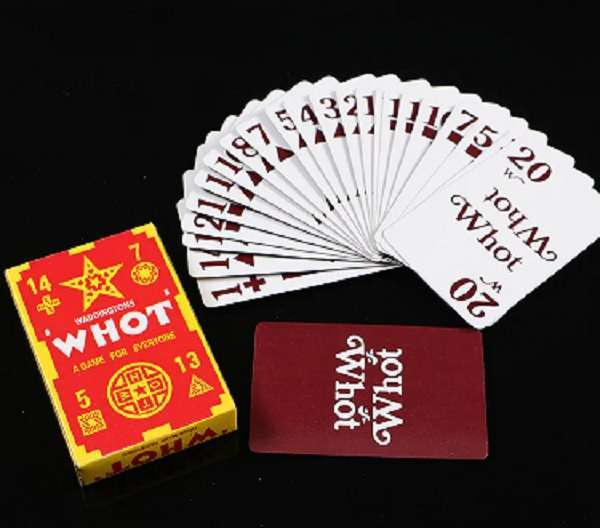
One sure way of boosting your immune system, even without taking immunity-enhancing drugs, is by playing card games. Studies have shown that playing card games, especially bridge and spades, has immense benefits, among which are boosting the immune system, boosting mental wellbeing, and lowering the risk of dementia.
It has also been proven that, apart from boosting emotional and mental health, card games keep the mind active and serve as a social channel. Moreover, in addition to improving memory skills and relieving stress, playing card games can enhance mathematical skills, logical reasoning, and critical and strategic thinking skills.
Bridge and spades belong to the category of trick-taking card games. Bridge, in particular, is an internationally recognised sport that is also recognised by the International Olympic Committee (IOC). The game has an international body, known as the World Bridge Federation (WBF), which was established in August 1958, with its headquarters currently in Lausanne, Switzerland. The current president of the federation is Jan Kamras, a Swedish.
Bridge is a trick-taking card game, using a standard 52-card deck. In its basic format, it is played by four players, in two competing partnerships, with partners sitting opposite each other around a table. The World Bridge Federation describes bridge game as “the ultimate trick-taking card game, easily the greatest source of enjoyment that four people can have with a pack of cards”. The game can be played at a competitive level or with friends at home and this makes it one of the world’s most popular card games. In fact, a study found that bridge is the most played card game in America.
Just like bridge, spades game is traditionally played with four players and split into teams of two, with teammates on opposite sides of the table. One unique thing about card games is that it is sometimes difficult to differentiate between them. For instance, between bridge and spades, expert players say the thin line of difference is that spades has an unintelligent bidding process, with no communication between partners, whereas bridge uses a complex series of cues and meanings to convey specifics about the card holding.
Generally, in Nigeria, card games are simply called “card”, “joker” or “whot”, with just a slight, if any, variation in the way they are played.
Although it has not been established as a cure for dementia, there is evidence that playing bridge can contribute to helping to keep the brain healthy and remember things easily. According to a November 2000 study by a researcher at University of California, Berkeley, Marian Cleeves Diamond, playing bridge will ensure a higher numbers of immune cells.
Diamond specifically carried out an experiment where she chose to study bridge players from Orinda, a Californian women’s bridge club after she earlier suspected that bridge is a game likely to stimulate an area of the brain. She specifically pointed out that she suspected that the dorsolateral cortex influenced the immune system. She also said that she selected women as subjects because most of her laboratory experiments had involved immune-compromised female mice.
Diamond and graduate student, Jean Weidner, divided 12 women, all in their 70s and 80s, into three groups, and had each group play a one-and-a-half-hour bridge set. Weidner, a former phlebotomist, drew blood samples before and after the sets and delivered them to immunology research associates, Peter Schow and Stan Grell, to measure the numbers of immune cells.
The results of the findings show that the levels of CD-4 positive T cells changed in the 12 subjects. In two of the groups, levels increased significantly. In the third group, T-cell levels increased only slightly.
Diamond specifically said an area of the brain involved in playing bridge stimulates the immune system, in particular – that is, the thymus gland that produces white blood cells called T cells, or T lymphocytes. T cells are white blood cells produced by the thymus gland and sent out to patrol the body in search of viruses and other invaders. T cells that sport a surface marker called CD-4 are “helper” cells that regulate the activity of antibody-producing B cells and of other T cells.
According to Diamond, “Bridge was ideal for what we were after. It is the closest activity to a challenging card-sorting task that also contains multiple factors that should stimulate the dorsolateral cortex. Bridge players plan ahead, they use working memory, they deal with sequencing, initiation, and numerous other higher-order functions with which the dorsolateral cortex is involved.”
Similarly, in 2011, researcher Alfred Schademan, found out that playing spades game has immense benefits, based on his study, titled, “What does playing cards have to do with science? A Resource-rich view of African-American young men”.
The study examined the resources related to science that African-American young men learnt and developed by playing spades. The qualitative study examined what the spades players at a local high school considered when making decisions about what cards to play. A significant finding of the study was that the players used, learnt and developed resources, such as making observations, drawing inferences, and using empirical data to inform future actions and decisions.
Additionally, three researchers in India, Su T, Cheng MT, Lin SH., in their 2014, study titled, “Investigating the effectiveness of an educational card game for learning how human immunology is regulated”, showed that students who play spade game get more understanding than their counterparts.
The researchers said “This study was conducted in an attempt to investigate the effectiveness of an educational card game we developed for learning human immunology. Two semesters of evaluation were included to examine the impact of the game on students’ understanding and perceptions of the game-based instruction. Ninety-nine senior high school students (11th graders) were recruited for the first evaluation, and the second-semester group consisted of 72 students.
“The results obtained indicate that students did learn from the card game. Moreover, students who learnt from playing the game significantly outperformed their counterparts in terms of their understanding of the processes and connections among different lines of immunological defence,” the researchers said in their report.
With the many verified benefits of playing card games, it has become imperative indulge in them more often. One other good thing about card games, according to experts, is that it only takes rudimentary knowledge to begin playing and enjoying them, though mastering them may be harder. Moreover, in Nigeria, the price of a pack of any of the card games is readily affordable.










